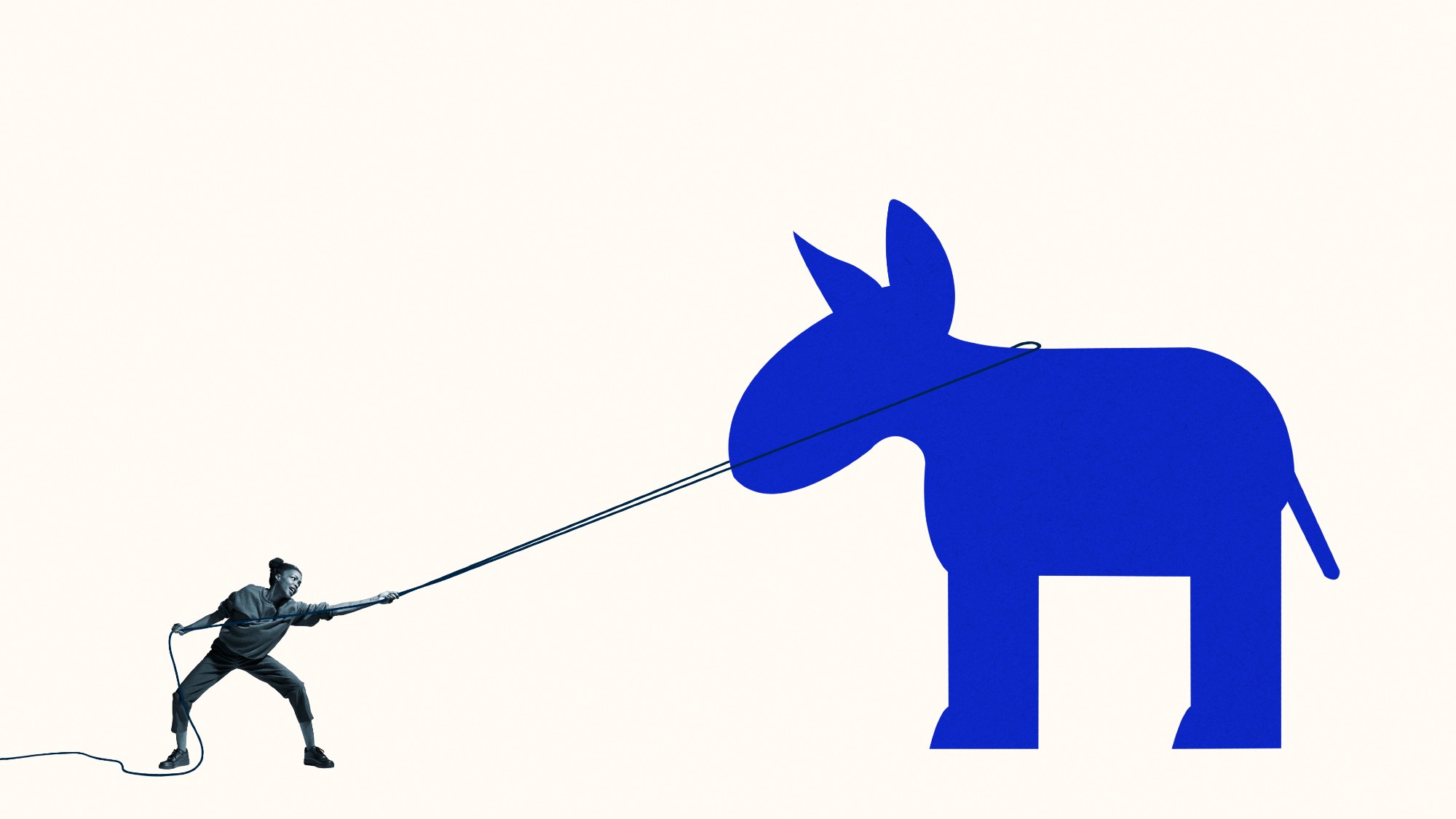Why is the Democratic Party's favorability rating so low?
Voters do not like Republican policies. They like Democrats even less.


A free daily email with the biggest news stories of the day – and the best features from TheWeek.com
You are now subscribed
Your newsletter sign-up was successful
The Democratic Party is in trouble. A new poll shows a record share of voters view the party unfavorably, leaving party leaders scrambling to figure out how to broaden their brand's appeal.
Nearly two-thirds of Americans have an "unfavorable view" of Democrats, said The Wall Street Journal, which commissioned the poll. That is the "highest share" of negative ratings for a political party in the paper's surveys going all the way back to 1990. Democrats hoping for a "voter backlash against the president" ahead of next year's midterm elections have a long way to go to persuade the public "they can do a better job" than the GOP. Republicans do not come off well, either — the poll shows the public dislikes President Donald Trump's "handling of the economy, inflation, tariffs and foreign policy." But Democrats "don't have the credibility to be a critic of Trump" or the GOP, said Democratic pollster John Anzalone.
'Hit rock bottom'
Democrats have "hit rock bottom," said Nick Catoggio at The Dispatch. Despite all the terrible events that have happened in America since 1990, "at no point" have voters disliked a party as much as they do Democrats at this moment. It is possible that voters will "come around." But the Journal's poll shows that Republicans get higher marks than Democrats even on "issues on which Trump receives bad marks." That looks like a "catastrophic decline in confidence in the left's basic ability to govern."
The Week
Escape your echo chamber. Get the facts behind the news, plus analysis from multiple perspectives.

Sign up for The Week's Free Newsletters
From our morning news briefing to a weekly Good News Newsletter, get the best of The Week delivered directly to your inbox.
From our morning news briefing to a weekly Good News Newsletter, get the best of The Week delivered directly to your inbox.
Democrats "express much less warmth" toward their own leaders than Republicans, said Philip Bump on his website. It is no coincidence that the "most vibrant expressions of opposition" to Trump come from figures like Sen. Bernie Sanders and Rep. Alexandria Ocasio-Cortez, who "sit at a distance from the party." If party leadership continues to stumble, Democratic candidates should "run against or apart from the party as much as possible."
"These are some tough numbers for Democrats," said G. Elliott Morris at Strength in Numbers. There is a bright spot: The same poll also shows that Democrats have a three-point advantage in the "generic congressional ballot," which measures which party voters would want to represent them if the election were held today. That seemingly slim lead "would be large enough for the Democrats to win somewhere around 230-235 seats" in the House.
'Nobody's voting on anything'
There is a "silver lining" for Democrats, said Jim Geraghty at The Washington Post. "If you're going to be unpopular, do it when almost nobody's voting on anything." There are a "handful" of special elections for the House of Representatives this year, but there is still more than a year to go before the 2026 midterm elections. The Journal's poll may be "ominous," but at the moment, "it doesn't count for anything."
"Democrats don't need to be popular," said Ed Kilgore at New Yorkmagazine . Right now, the party's candidates are favored to win "most of the competitive off-year races in 2025, including the New Jersey and Virginia governorships." If Democrats win a few elections, "that will take care of most of their morale problems."
A free daily email with the biggest news stories of the day – and the best features from TheWeek.com
Joel Mathis is a writer with 30 years of newspaper and online journalism experience. His work also regularly appears in National Geographic and The Kansas City Star. His awards include best online commentary at the Online News Association and (twice) at the City and Regional Magazine Association.
